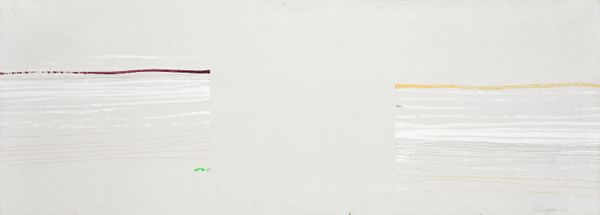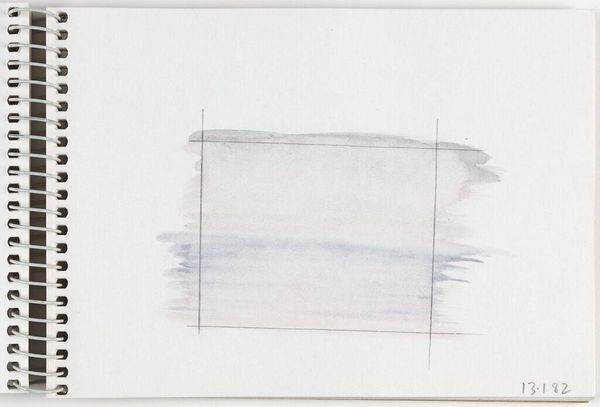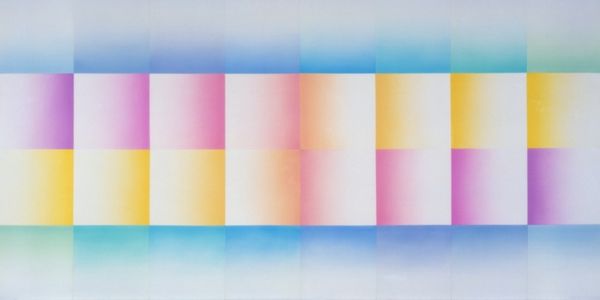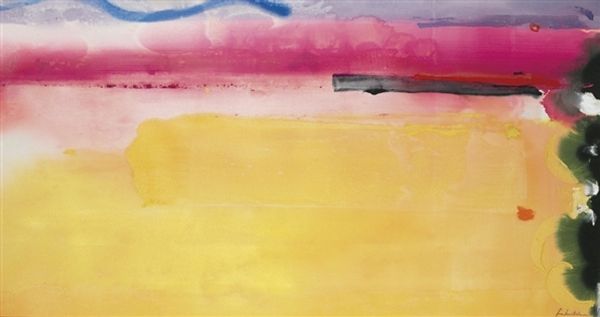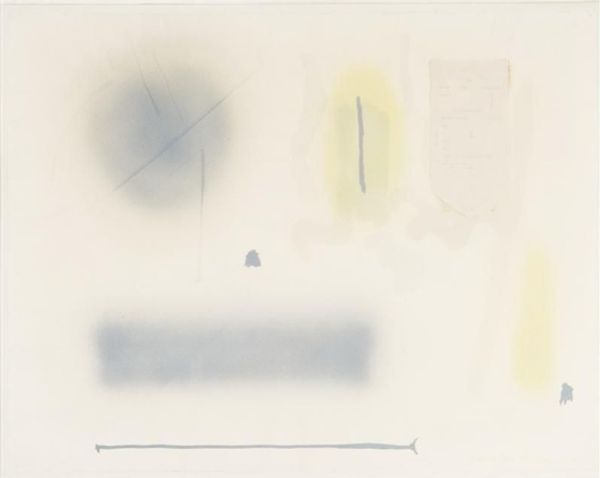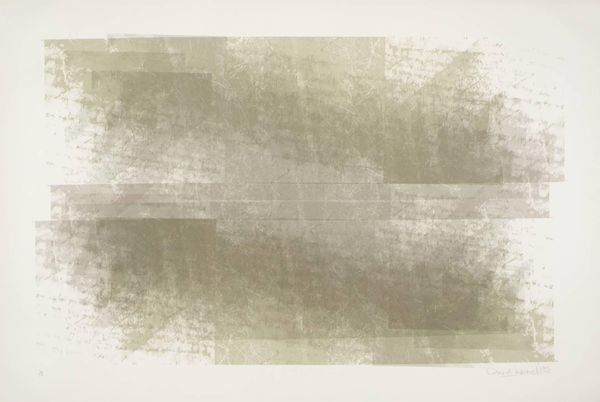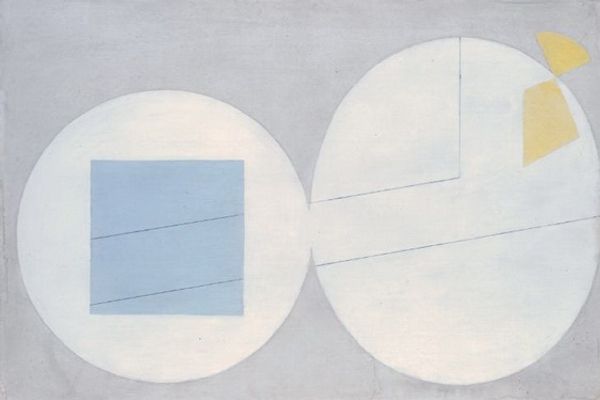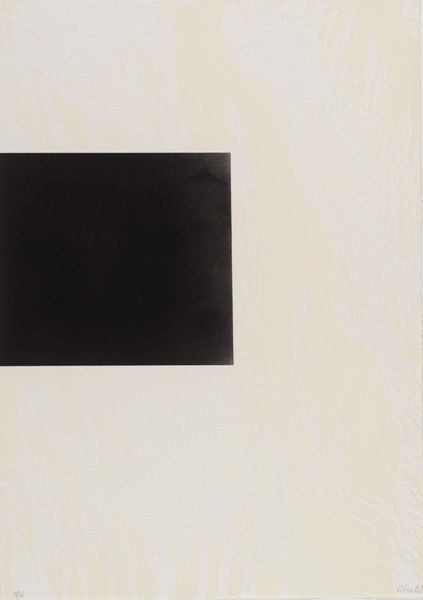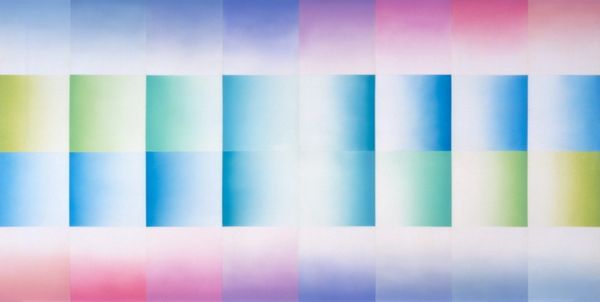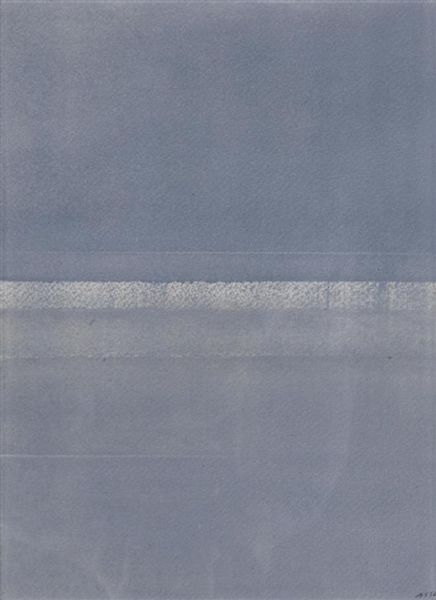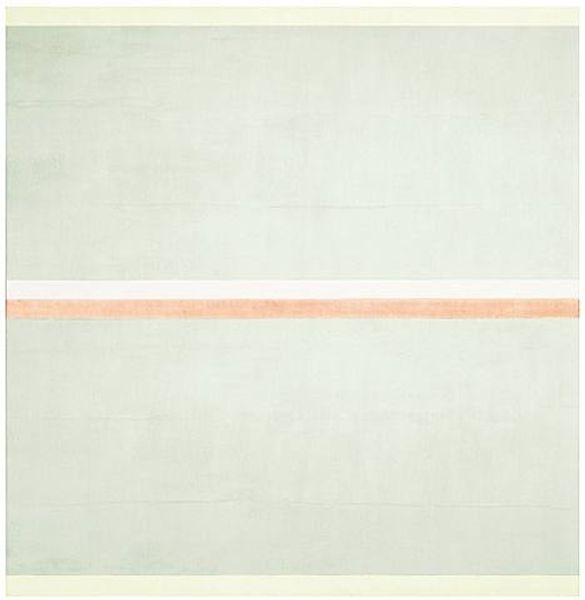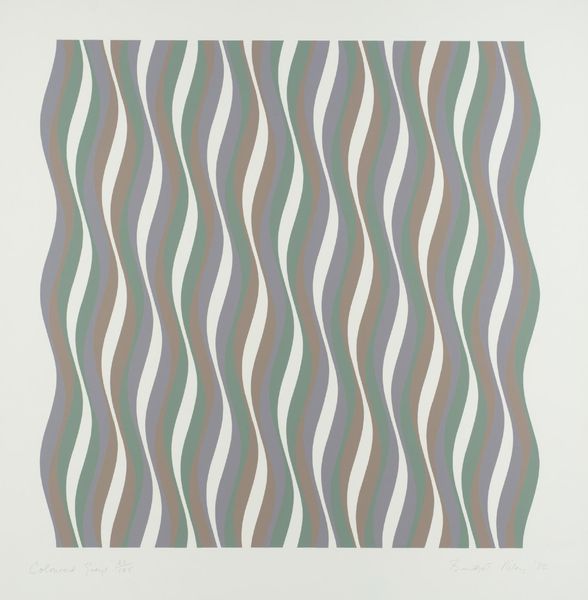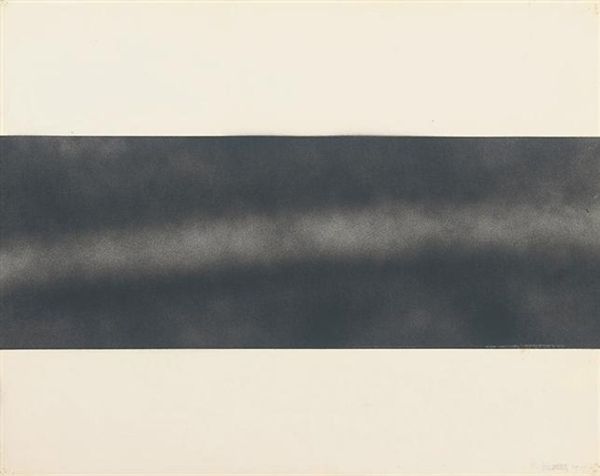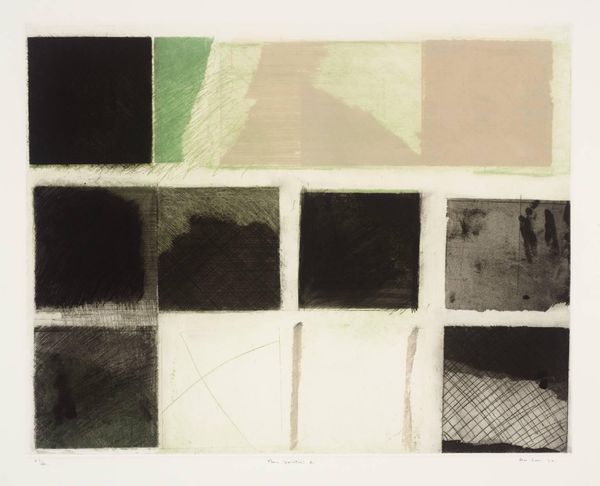
Dimensions: support: 1530 x 2140 mm
Copyright: © John Latham Estate, courtesy Lisson Gallery, London | CC-BY-NC-ND 4.0 DEED, Photo: Tate
Editor: Here we have John Latham's P(n)2:3/12. What strikes me are the textures of these faded horizontal lines. What is your perspective on this work? Curator: The emphasis on process and materiality is crucial. Consider Latham's interest in systems and how information decays over time. The spattered paint, the act of creation, it’s all about labor and materiality. Editor: So it is about how the painting was done, rather than what it represents? Curator: Precisely! We should challenge the boundary between high art and a record of physical processes. What do you think about the lack of specific dating? Editor: It makes me think he wanted the work to be timeless, focused on the immediate impact of material and creation. Curator: Indeed, a de-emphasis on traditional art historical narratives.
Comments
Join the conversation
Join millions of artists and users on Artera today and experience the ultimate creative platform.
tate 9 months ago
⋮
Since the mid-1950s, Latham's work has addressed the need for a single theory capable of explaining the universe. Bridging scientific, philosophical and artistic ideas, Latham proposes a time-based explanation of reality, a theory he calls 'Event Structure'. This argues that all things that exist can be thought of as 'events' of different duration. According to Latham, the form and structure of things are explicable only in relation to time. This concept is demonstrated in P(n)2:3/12. The painting is the result of spraying parts of the canvas with paint for a definite period. Gallery label, August 2004
